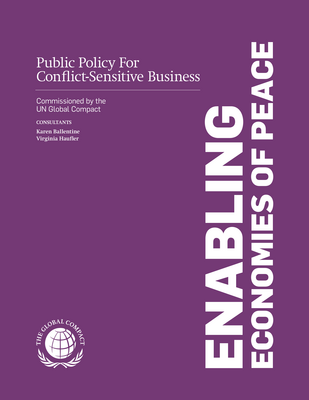Summary
The findings and conclusions presented in Enabling Economies of Peace, which was first published in April 2005, summarize several years of pioneering work in this area. They remain relevant today, as the scourge of conflict continues to ravage countries around the globe. But there have been important developments. A number of practical approaches, such as the Voluntary Principles on Security and Human Rights and the Extractive Industry Transparency Initiative (EITI), have matured in recent years and a renewed focus on how the private sector can make a positive contribution to peace may help these voluntary instruments achieve greater impact. Moreover, as the UN Global Compact has gone global–with now over 6,500 participants supported by 90 country networks–opportunities for making a difference on the ground have multiplied. Finally, new actors, especially investors, have entered the new state, willing to give further momentum to this agenda, as they have begun paying more attention to the materiality of environmental and social risks to long-term performance.

We have sent you the download link, please check your inbox.
Download againSomething went wrong when trying to download this file.
Try again